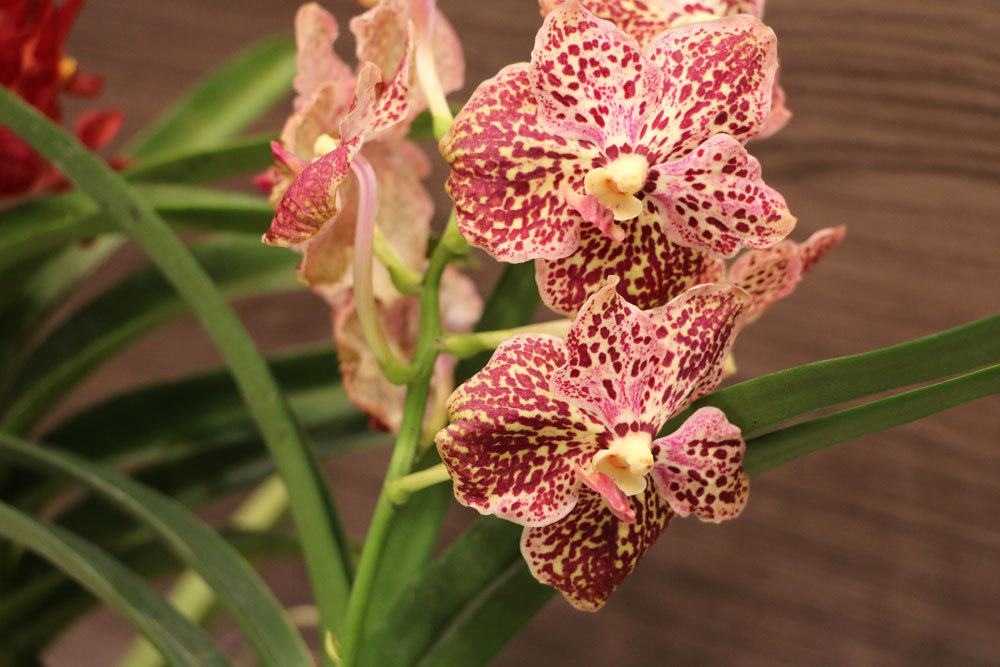Orchids are very demanding. For good care they also require sufficient nutrients and minerals. These obtain the plant species only conditionally, so that here must be helped by means of fertilizer. What the best orchid fertilizers are, how you can make fertilizer yourself and many tricks for fertilizing, you will learn from the orchid expert.
Contents
- 1 Fertilizing
- 2 Indoor plant fertilizer
- 3 Fertilizing methods
- 4 Fertilizer sticks
- 5 Liquid fertilizer
- 6 Fertilizer Spray
- 7 Ingredients
- 8 Potassium
- 9 Nitrogen
- 10 Phosphate
- 11 Chemical free fertilizing
- 12 Natural fertilizers instead of chemicals
- 13 Best home remedies
- 14 Compost tea
- 15 Preparation
- 16 Yeast
- 17 Preparation
- 18 Coffee grounds
- 19 Black tea
- 20 Preparation
- 21 Author
Fertilizing
In addition to proper care, fertilizing plays an immense role in orchid plants for vigorous, healthy growth and beautiful flowers. It is very sensitive, so no conventional fertilizer is suitable for use. The amount also determines the well-being of this flowering plant. In the following, the orchid expert explains what you should pay attention to, which fertilizers are the best and how you can easily make your own fertilizers with simple home remedies.
Indoor plant fertilizer
The most favorable offers of fertilizer products are available in stores as classic flower fertilizers for houseplants. Under no circumstances should you use these for your orchids, because they have a general nutrient composition that is not specifically tailored to the needs of the plants.
As a rule, the nutrient content is also at an average level, based on the needs of countless houseplants. But the need for some minerals and nutrients in an orchidaceae is below or above average. Thus, in many cases, the plant would be subjected to over- or under-fertilization, to which it can be extremely sensitive. As a result, fertilization would usually cause damage rather than promote growth, health or flower abundance. Therefore, never use a conventional houseplant or flower fertilizer, but use only special orchid fertilizer or homemade fertilizer that meets the requirements of this flowering beauty.
Fertilizing methods
Orchid plants require a special orchid substrate or are kept in hydroponics or semi-hydro. An important characteristic is the coarse structure and above-average looseness of the substrate, so that light can reach the roots and the roots can find a foothold. In this way, photosynthesis is supported and required oxygen can be absorbed by the roots, which is not necessary for most other plants. This significantly affects the choice of which fertilization method you should use.
Fertilizer sticks
Fertilizer sticks dissolve poorly in the special orchid substrate or hydroponics and the ingredients cannot be evenly distributed. Often this indicates waste, as the plant gets little real benefit from the ingredients.
Liquid fertilizer
Liquid fertilizer, in contrast to fertilizer sticks, gets into every air space and every substrate grain or into the expanded clay balls. For this reason, you should prefer liquid fertilizer over fertilizer sticks when fertilizing to ensure ideal and even fertilization. Seramis, for example, offers a liquid orchid fertilizer that also has an automatic return if too much pressure is applied to the bottle. In this way, overdosing is prevented. This liquid fertilizer is simply added to the watering water.
TIP: If you pour orchid liquid fertilizer into a basin of water and immerse the plant / roots in it for a few minutes, you will achieve optimal fertilizer absorption.
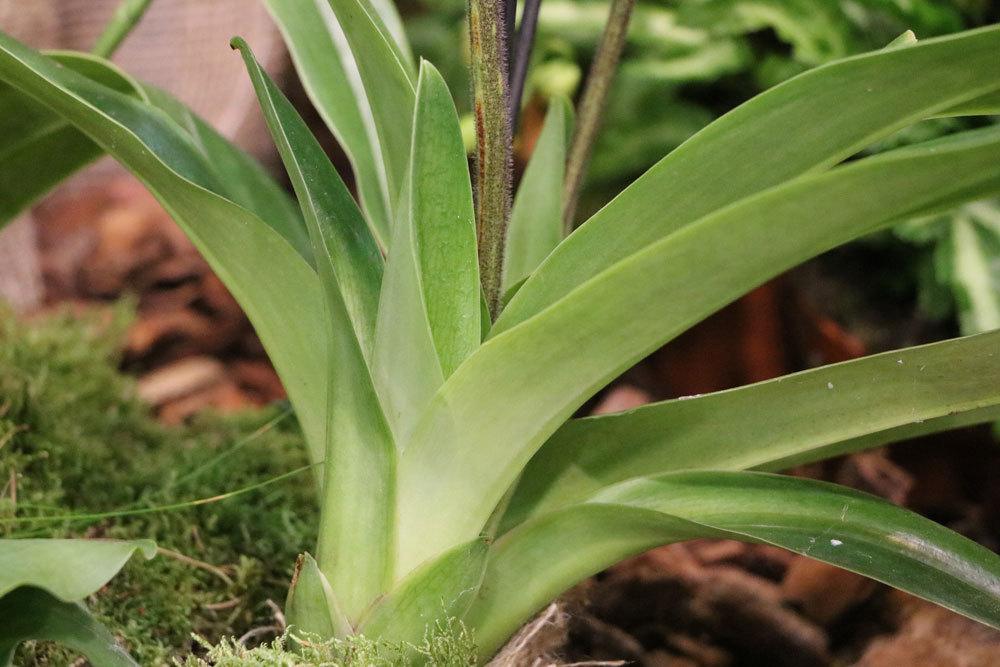
Fertilizer Spray
Orchid leaves, just like the roots, absorb nutrients and distribute them inside the plant. For this reason, fertilizer sprays have also been developed, such as orchid Vital Spray from Chrysal. As a rule, sprays have urea, which is the most commonly used nitrogen fertilizer. In addition, sprays provide a special shine to the leaves. However, the spray should not be sprayed on flowers. A recommended product is, for example, PURITAL Premium Orchid Spray. It is composed of high-quality raw materials that can be optimally absorbed through the leaves. The product also has the advantage that it does not contain lime, which could leave unsightly stains on the leaves, as is the case with some other sprays.
Ingredients
Good fertilizer for orchidaceae should focus on potassium and nitrogen. Phosphorus is an important ingredient for flowering. Especially in the case of self-production, as well as organic fertilizers, you should pay attention to this.
Potassium
Potassium is a nutrient that gives orchids more strength and improves the supply transport of valuable substances. If there is a potassium deficiency, the leaves fall off and in the worst case the plant dies. An optimal potassium content has, for example, fertilizer from compost, manure and yeast.
Nitrogen
Nitrogen is a vital element without which your orchidaceae would die. With increasing age, the nitrogen requirement increases. This means that older specimens in particular need regular nitrogenous special fertilizer for orchids. However, this should only be administered in good doses, as too much nitrogen can prevent flowering, even if it otherwise positively supports growth. You can recognize a nitrogen deficiency by stunted growth. In organic fertilization, experts rely primarily on compost fertilization.
Phosphate
Phosphate stimulates flower formation and prolongs the flowering period. However, an over-supply quickly leads to the opposite, which is why the basic rule here is: less is more.
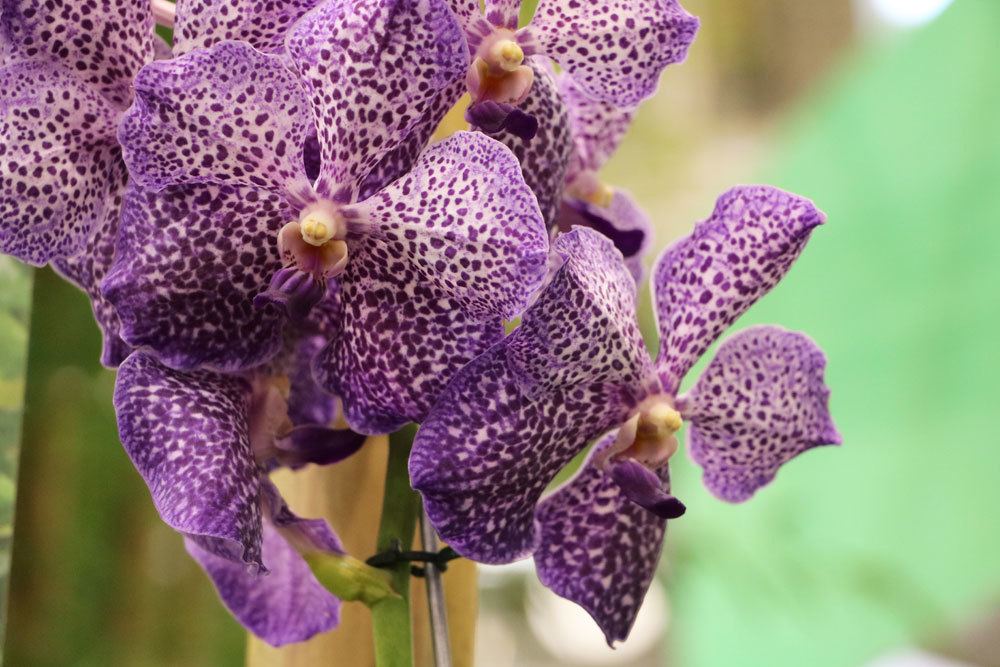
Chemical free fertilizing
Homeopathic fertilization
Environmentally friendly, biodegradable, free of any pollutants and chemical substances, shows a homeopathic fertilization. Recommended here, for example, is the product of the manufacturer Neudorff “Homeopathic Orchid Elixir”, which as a spray strengthens leaf and flower growth and increases resistance to diseases and parasites.
Among other things, it contains optimal amounts of:
- Potassium
- Calcium
- Iron
- Magnesium
- Phosphorus
- Boron
- Manganese
- silicon
- organic germanium and uronic acids (plant mucilages in homeopathically dynamized forms according to D6-D100
Natural fertilizers instead of chemicals
Artificially produced fertilizers from chemical components are becoming less and less important in the world of plants and flowers. Increasingly, natural fertilizers are taking their place.
Apart from often harmful ingredients and sometimes dangerous poisons, many products are not naturally degradable. This not only pollutes the environment, but can cost the life of the sensitive orchid, especially in the event of overdosing. More optimal is the administration of natural fertilizer, which even in the case of an overdose, often allows the plant to regain its strength due to natural degradation. The manufacturer COMPO offers here, for example, a special liquid fertilizer with guano and plant enzymes for bedding and pot orchids. Guano is a valuable, natural nutrient supplier that strengthens root growth and resistance, and extends the life of the plant and the duration of flowering.
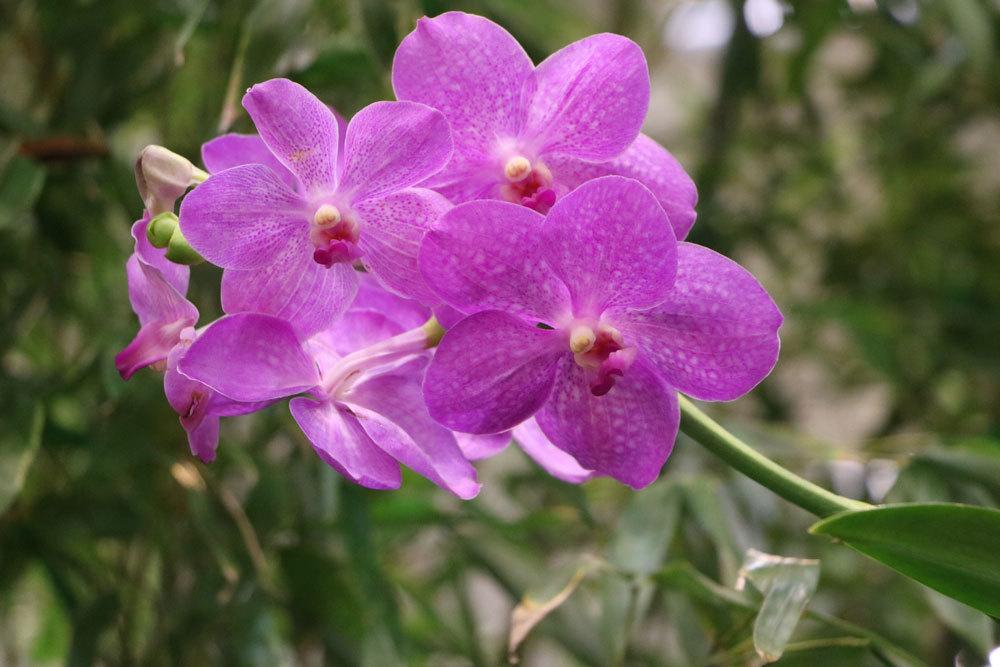
Best home remedies
A similar or equally effective effect as from a natural fertilizer or homeopathic product, you can achieve with the help of various home remedies that you can easily make yourself.
Compost tea
Compost is considered the best fertilizer for orchids. However, you should not use ordinary garden compost, but only leafy plant materials such as lettuce or salsify. Old vegetables such as tomatoes or cucumbers can also be added.
While solid compost is ideal to work into the soil of bedding orchids, it spreads an unpleasant odor around the room in the case of indoor orchids. For this reason, and because it spreads better in the substrate or expanded clay, it is recommended to prepare compost tea.
Preparation
- fill a bucket with water free of chlorine and lime
- add one liter of water to one kilogram of plant material
- leave to rest/rot for at least 24 hours
- recommended ambient temperature is at least 20 degrees Celsius – the higher the better
- sieve out rotten material after the resting period
- pour the tea into a watering can or into an immersion tank
- cover tea residues, they will keep for a few weeks and can be reused
Yeast
Fertilizing with yeast is one of the expert tips that improves the growth and hardiness of orchid plants. In a cube of yeast is mainly potassium, as well as half the amount of phosphorus. Nitrogen is usually included in dry yeast at about 60 percent, so you should prefer dry yeast for fertilizing. From it you can prepare a solution for watering yourself.
Preparation
- crumble one yeast cube into 10 liters of lukewarm, low-calcium water
- stirring accelerates the dissolving process
- use only when there are no solid yeast residues left
- watering rhythm is every two to three weeks
- application period is before and during flowering
- is also excellent for orchids planted in expanded clay
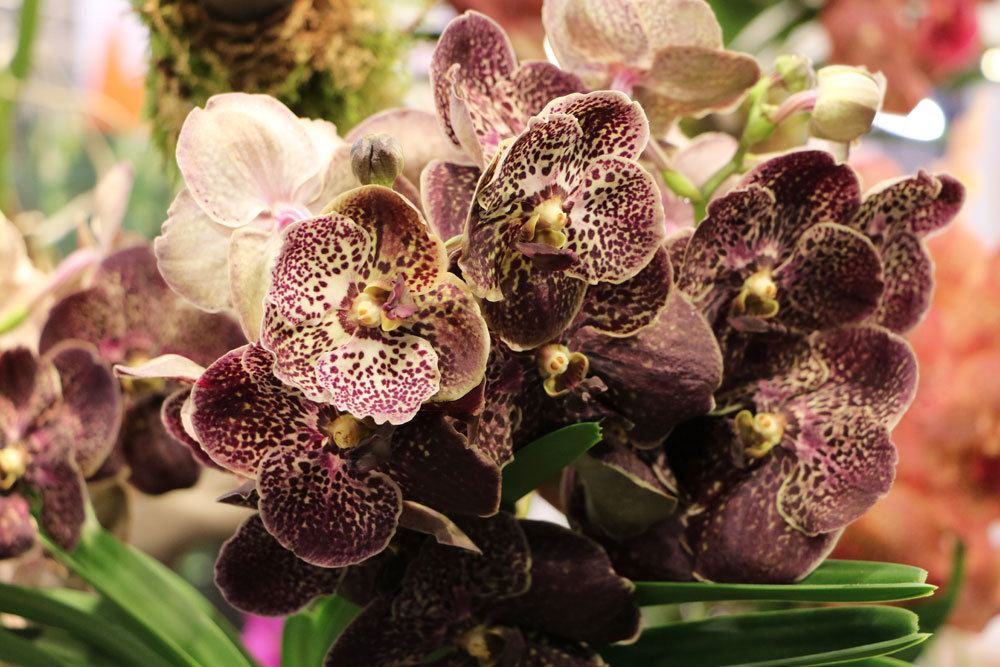
Coffee grounds
Coffee is drunk in most households. Instead of disposing of coffee grounds in the trash, you can use them as an effective orchid fertilizer. This organic home remedy contains all the substances that an orchidaceae needs to thrive magnificently.
However, this is only suitable for plants in substrate, while they should do without it in hydroponics.
Proceed as follows when fertilizing:
- spread the coffee grounds on the substrate surface.
- water a little only after laying it out
- once it has dried or after three days at the latest, replace it with fresh coffee grounds
- if it remains damp on the substrate for too long, there is a risk of mildew
TIP: The orchid cultivated in hydro, does not have to do without the valuable fertilizing substances in the coffee. Alternatively, you can use them with black coffee cooled to room temperature every other watering.
Black tea
About the same fertilizing properties as coffee grounds and black coffee, also has black tea. So, if you are one of those tea drinkers instead of coffee drinkers, you will also find black tea a perfect home remedy for fertilizing your orchid plants.
To do this, however, do not use a new tea bag or prepare the tea fresh, but help yourself exclusively to the leftovers after brewing. Here then potassium, phosphorus and nitrogen are contained in optimal quantities, so that this exactly meets the requirements of the Orchidaceae. The black tea favors growth and the plant becomes more robust overall. This means it becomes less susceptible to disease.
Preparation
- dip the used tea egg or tea bag in warm water
- calculate one tea bag per 250 milliliters of water
- let it brew for about 20 minutes
- remove tea bag/tea egg and let tea water cool down to room temperature
- then use as water for watering
- the tea water should always be freshly prepared
- use only low-calcium/free water
- daily watering with the tea does not provoke an over-supply of nutrients and minerals

